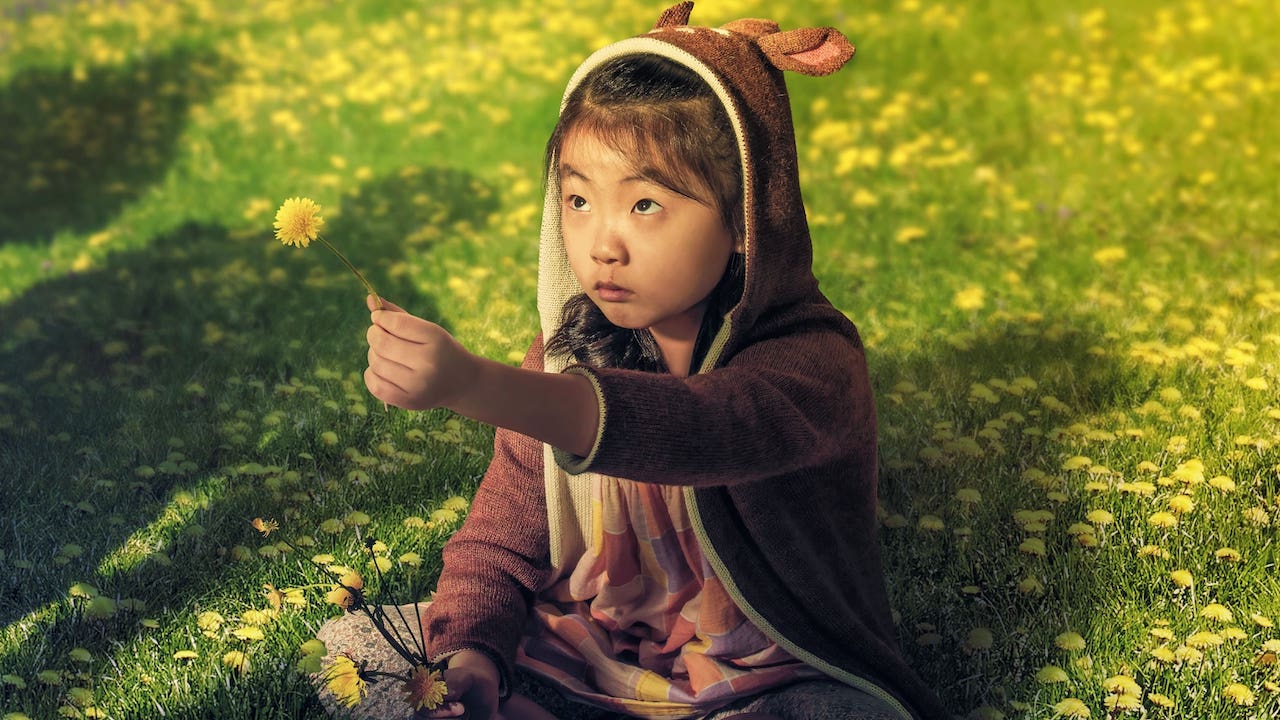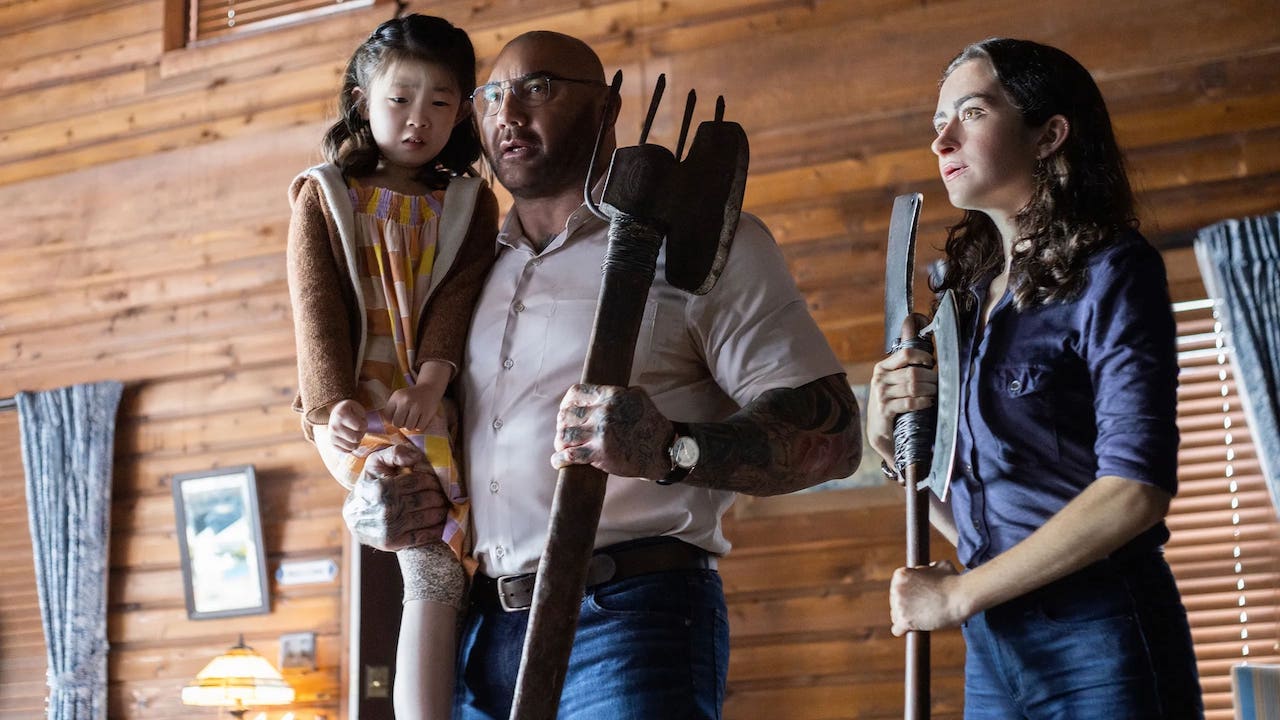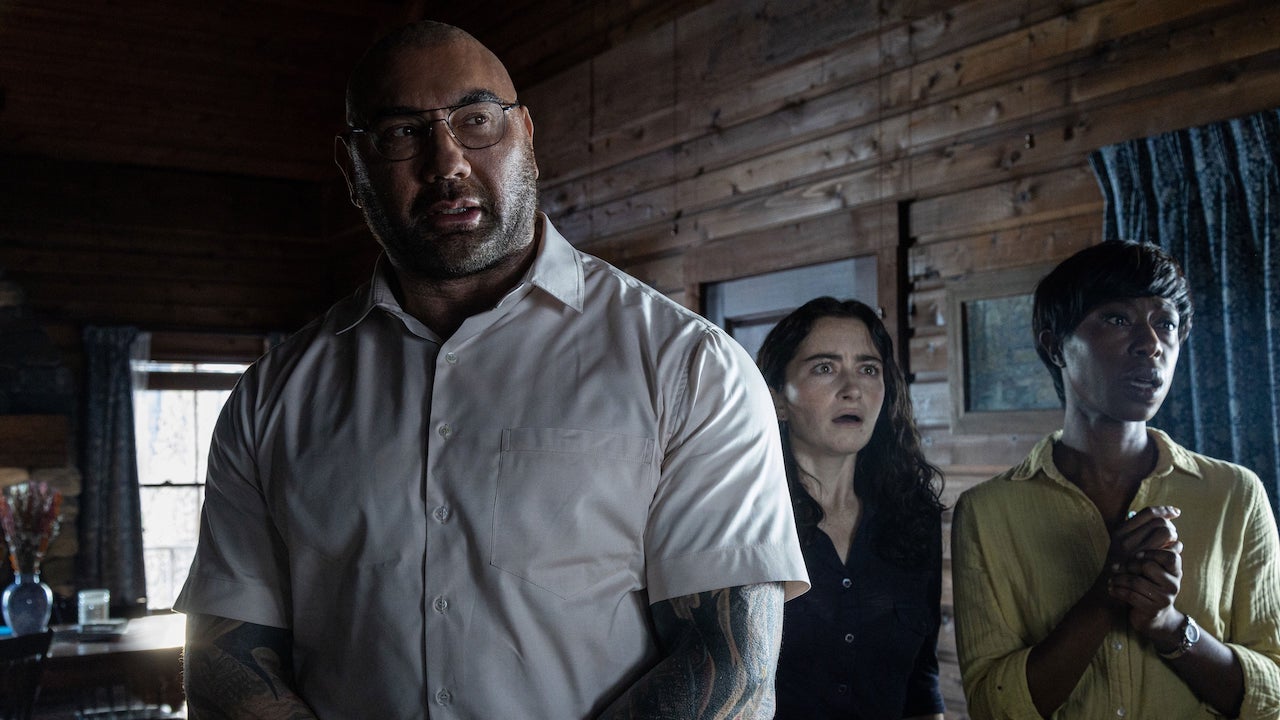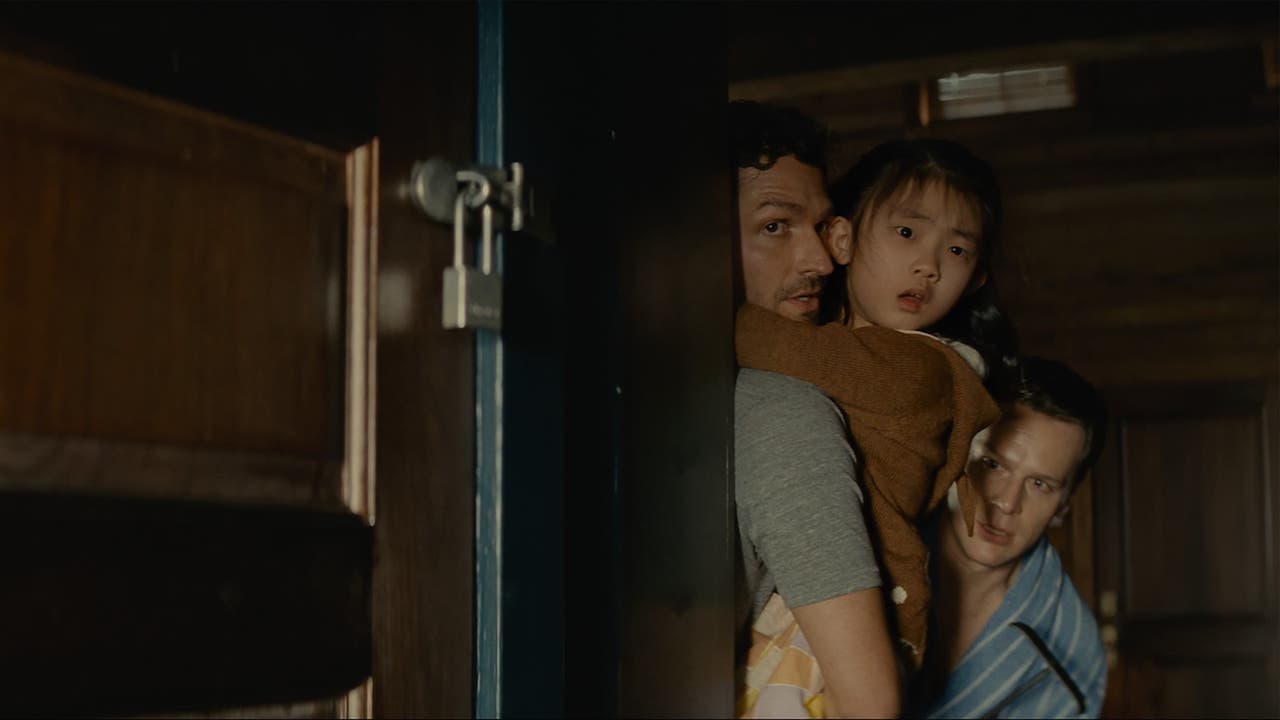Knock at the Cabin is about the end of consensus reality

M. Night Shyamalan’s new thriller poses a thoroughly 2023 question: what do we owe each other at the end of the world, when we can’t even agree on whether it’s happening or not? Luke Buckmaster weighs the film’s themes of logic and faith.
Knock at the Cabin
Remember when most of us agreed, in broad terms, about reality? Not what it was or meant, but that it really did exist. Those were the days, before breaks in reality usurped reality itself; before the glitches became The Matrix. Before Trump, before anti-vaxxers, before the pandemic, before Chat-GPT, before the Oscars envelope mix-up, before the overturning of Roe v. Wade, before Kendall Jenner’s Pepsi commercial, before QAnon, before social media echo chambers, before the Simulation Theory, before we properly understood the terrifying impact of climate change. If today’s loud and turbulent times have an underlying message, it’s that consensus reality has ended.
Gone. Kaput. This collapsing of reality is the reason M. Night Shyamalan’s new film Knock at the Cabin is a great thriller for our times. Adapting Paul G. Tremblay’s novel The Cabin at the End of the World, turning the “holiday from hell” narrative into “holiday that might trigger Armageddon”, the film tells the story of a modern family harassed on vacation by zealots who believe the world is ending. And, worse, they say the only way to avoid humankind’s annihilation is if the family sacrifice one of their own. Over the next 90 minutes, the director taps into the philosophically rubbery nature of existence while evoking a message that maybe, just maybe, the crazy person is right.
From the start the film has real tension. Shyamalan opens with Leonard (Dave Bautista) introducing himself to Wen (Kristen Cui)—the young adopted daughter of married couple Andrew (Ben Alrdidge) and Eric (Jonathan Groff)—while she catches grasshoppers outside. Dave Bautista has a good physique for a man with a mysterious moral compass: his round bespectacled face might be kindly, even if his boulder-like physique is intimidating. Shyamalan makes this dialogue exchange intimate yet unsettling by cutting between mega close-ups of each face, and editing the scene with a rhythm that’s a little off, a little bent. There are inferences of something peculiar coming when Leonard tells the little’un he has a job to do: “in fact, it might be the most important job in the world.”
Before long, the stranger and his small ensemble of weirdos—Sabrina (Nikki Amuka-Bird), Adriane (Abby Quinn) and Redmond (Rupert Grint)—muscle into the cabin and tie the vacationers to chairs. Andrew assumes they’re committing gay hate crimes, though Leonard assures him “we’re not here with hate or prejudice in our hearts.”

Each intruder introduces themselves before Leonard delivers the hard sell: “The four of us are here to prevent the apocalypse,” he says, and “ultimately whether the world ends or not is up to you three.” The group have experienced shared visions, he explains, revealing what’ll happen if no sacrifice is offered. To wit: the “cities will drown,” “the oceans will rise up,” “a terrible plague will descend” and “the sky will fall and crash to the earth like pieces of glass.” He says that without a sacrifice, every human on earth—other than Eric, Andrew and Wen—will die.
As all this is happening, Andrew reassesses whether putting the cabin on AirBNB is a good idea: the air outside is fresh and the woods beatific, but those Armageddon people wielding medieval-looking weapons really kill the vibe. As one would expect, the captives are incredulous, attempting to engage the intruders with a passé concept known as “logic.” They discover this is like trying to recommend a shot of Pfizer to an anti-vaxxer. Shyamalan evokes the fear of a world where faith outranks reason. There is also the question (which is why the characters’ sexuality is significant) of what obligation minority communities have to the same world that continues to oppress them.

Before long the viewer will ascertain that the narrative involves one of two core possibilities. The first is that the invaders are deranged and wrong; the second that what they’re saying is true. Both paths lead the film into a message about the collapsing of consensus reality. The first because each group has starkly different ideas about the future of themselves and the planet, as well as clashing concepts about knowledge and reason. The second because everything once considered valuable—that “l” word again, logic, and the seemingly immutable laws of the universe—are now called into question.
At one point Andrew discusses online message boards and drops the words “echo chamber”, in a monologue intended to make the captors doubt their seemingly unshakable convictions. This scene toys with a hypothesis explored in the chilling 2020 documentary The Social Dilemma: that in a world of digital silos and dividers, which accelerate distorted perspectives and reaffirm our biases, offering an infinite number of fake realities to cling onto, lack of consensus is not just a philosophical issue but an existential threat. If we can’t even agree that we’re living in a climate crisis, for instance, how can we fix it? Or from Leonard’s perspective: if these people can’t accept the truth about the end of the world, how can we stop it?

In another scene, Leonard turns on the television. I don’t think it’s a spoiler to say that the footage being broadcast might corroborate their vision of Armageddon, and also might not. If it does, the film enters Baudrillardian territory: just as the map precedes the location, the television broadcast precedes the actual event, therefore the simulation is real. If it doesn’t, the message becomes that we live in a world (indeed: we’ve lived here for some time) where we can no longer trust our eyes or ears. Where layers of virtualisation run so deep, and are so Russian doll-ed, we’re lost in simulacra, absorbing copies of things that no longer have an original.
Which returns us to the original point: that Knock at the Cabin is a great thriller for our times, because it’s about the end of consensus reality. The only thing scarier than the idea that knowledge and reason can’t save us is the possibility that faith might.


















